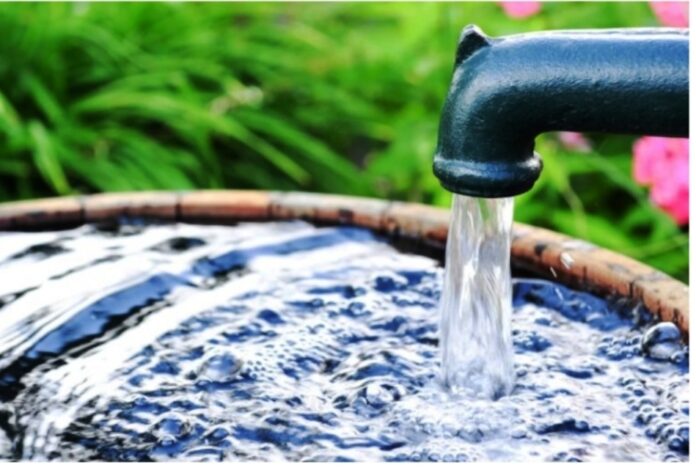By Fatimah Yusuf.
With the coming of President Bola Ahmed Tinubu, it became crystal clear that the administration intends to leave no stone unturned to diversify the nation’s economy through novel innovations and initiatives.
President Tinubu’s immediate pronouncement on the removal of subsidy on petroleum product, especially the Premium Motor Spirit (petrol) was seen by experts as a move to revolutionise the economy dramatically.
This singular pronouncement, expectedly sent a shock wave signals to economic sector players that a grand change is coming. This is coupled with the harmonization of foreign exchange.
The major Ministries, Departments and Agencies of Government saddled with income generation, therefore, saw these moves by the Tinubu administration as a challenge to change and improve on sustainable options to further boost the economy through provision of competitive services that are life changing to consumers and clients alike.
The Nigeria Integrated Water Resources Management Commission (NIWRMC) is one of such Agencies, domiciled under the Federal Ministry of Water Resources and Sanitation with the powers to regulate water resources from trans-boundary sources between two or more states for greater economic efficiency.
The NIWRMC carries out this responsibility through “a systematic process for sustainable allocation, development and monitoring of water resources use in the context of social, economic and environmental objectives. It also promotes the coordinated development and management of water, land and related resources, in order to maximize the resultant socio-economic development and growth in an equitable manner.”
According to World Health Organisation (WHO), water regulations refers to the control and management of water resources to ensure the provision of safe, sufficient and accessible water for human consumption, sanitation and hygiene as well as for other domestic, industrial and agricultural uses that support economic development and environmental sustainability.
The NIWRMC, overtime has been performing this regulatory role by appropriately licencing bulk water users for industries, mining, tourism, agriculture, hydrological and other sectors of the economy. These are providers of services that significantly contribute to economic growth and development of the country.
Water regulations have critical roles to play in driving economy growth by way of attracting investments leading to a successful nation. A country like Nigeria has lots to achieve in the regulations of its water sector to increase economic growth.
The Commission in conformity with global practice has the role of the management of water resources, a cardinal to national development and economic growth.
The vital responsibility to regulate bulk water users for commercial purposes to ensure greater economic efficiency, social equity, environmental sustainability, equity distribution, avoidance of conflict, and environmental protection have become imperative to drive the economy.
NIWRMC with the mandate of regulating the water resources development has brought about thriving economic growth. Therefore, regulating bulk water users of both ground and surface water can further translate into better performance in the various sectors.
Water regulations have facilitated the development of other sectors and driven economic growth thereby improving standards of living and increasing environmental viability.
Many organizations and companies dealing with bulk water in Nigeria have been issued licences by NIWRMC to be able to operate and to do their businesses in the country. This has led to effective and efficient development of their industries leading to high productivity.
The former Executive Director of the Commission, Engr. Magashi Umar Bashir said “we were invited by the Senate Committee on non-oil revenue and I showed them some projections that can really make money from water for the country. I am talking about people that use bulk water of both ground water and surface water. These are the big irrigation schemes, bottling companies, mining companies, all these can bring in good money.”
Walson Jack, who was the former Permanent Secretary of the Federal Ministry of Water Resources and now the Head of Civil Service of the Federation, while granting water use licence to a Hydro-power generating company, said “the viability of the business was necessary and will have a multiplier effect on the economy of the nation as a whole.”
Dr Cyril Christopher, the former Managing Director of Mabon Limited, while being issued licence, said his electricity generating company will continue to generate electricity as long as the company has enough water in the reservoir. He added that “more than 300 young people have been trained and employed by Mabon.” The positive contribution of the Commission to the electricity sector as well as creation of employment has greatly added to the sustainable economic growth in the country.
The Commission has equally contributed to the Agricultural sector through regulating bulk water use for irrigation, leading to food security. For instance, the Niger State Government entered into a Memorandum of Understanding (MoU) with one of the regulated Companies by the Commission, Kiara Rice Mill to support food processing markets that will create job opportunities and development in the State. The rice mill is also to provide technical training to farmers and processors.
From the foregoing, effective water regulations when harnessed well can immensely contribute to the attainment of positive economy growth. The activities of the Commission have boosted socio-economic development of Nigeria through a regulatory management that ensures availability and access to equitable water which has further facilitated industrial and economy growth in the country.
Fatimah Yusuf is the Resident Information and Public Relations Officer of Nigeria Integrated Water Resources Management Commission (NIWRMC).





